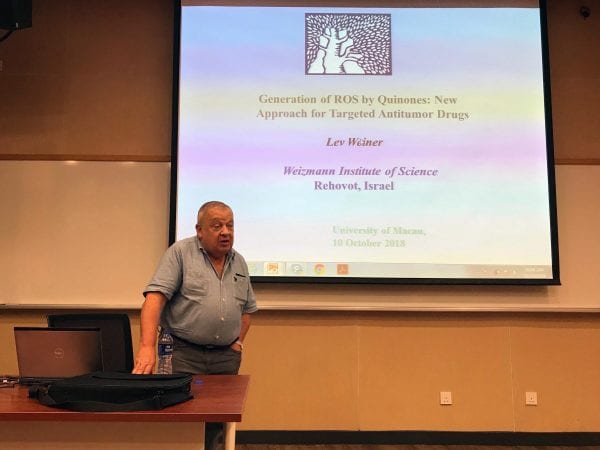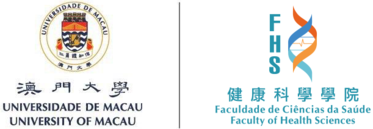| Talk title | New Type of Quinones as a Bioreductive Antitumor Drug |
| Speaker | Prof. Lev M. Weiner Weizmann Institute of Science |
| Date & Time | 10 October 2018 (Wed) 15:00-16:00 |
| Venue | Room G004, E12 Building (University of Macau) |
| Abstract | Chemotherapy is currently the principal method for treating many malignancies. Thus, the development of improved antitumor drugs with enhanced efficacy and selectivity remains a high priority. Anthracycline antibiotics (AAs), for example, doxorubicin, daunomycin, and mitomycin C, belong to an important family of antitumor agents widely used in chemotherapy. These compounds are all quinones. They are, thus, capable of being reduced by appropriate chemicals or reductases. One of their important properties is that under aerobic conditions their reduced forms undergo oxidation, with concomitant generation of reactive oxygen species (ROS), namely, superoxide anion radicals, hydrogen peroxide, and hydroxyl radicals. The presence of metal ions is essential for the generation of ROS by AAs in biological systems. Critical Issues: A fundamental shortcoming of the AAs is their high cardiotoxicity. We have proposed, and experimentally realized, a new type of quinones that is capable of coordinating metal ions. We have demonstrated in vitro that they can be reduced by electron transfer chains and glutathione with concomitant generation of ROS. They can also produce ROS under photo-excitation. The mechanisms of these reactions have been characterized by using nuclear magnetic resonance and electron paramagnetic resonance, including spin trapping technique. |


